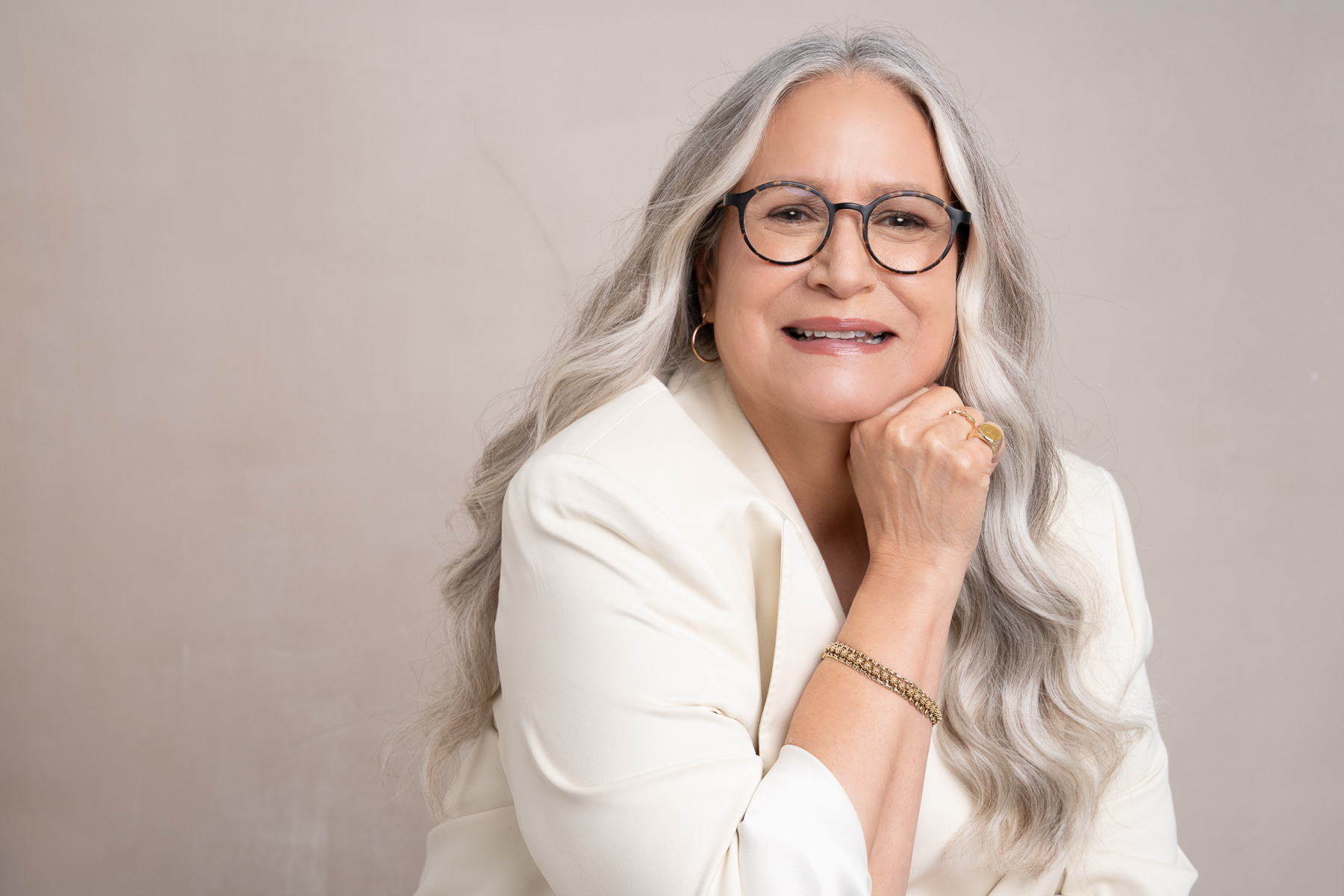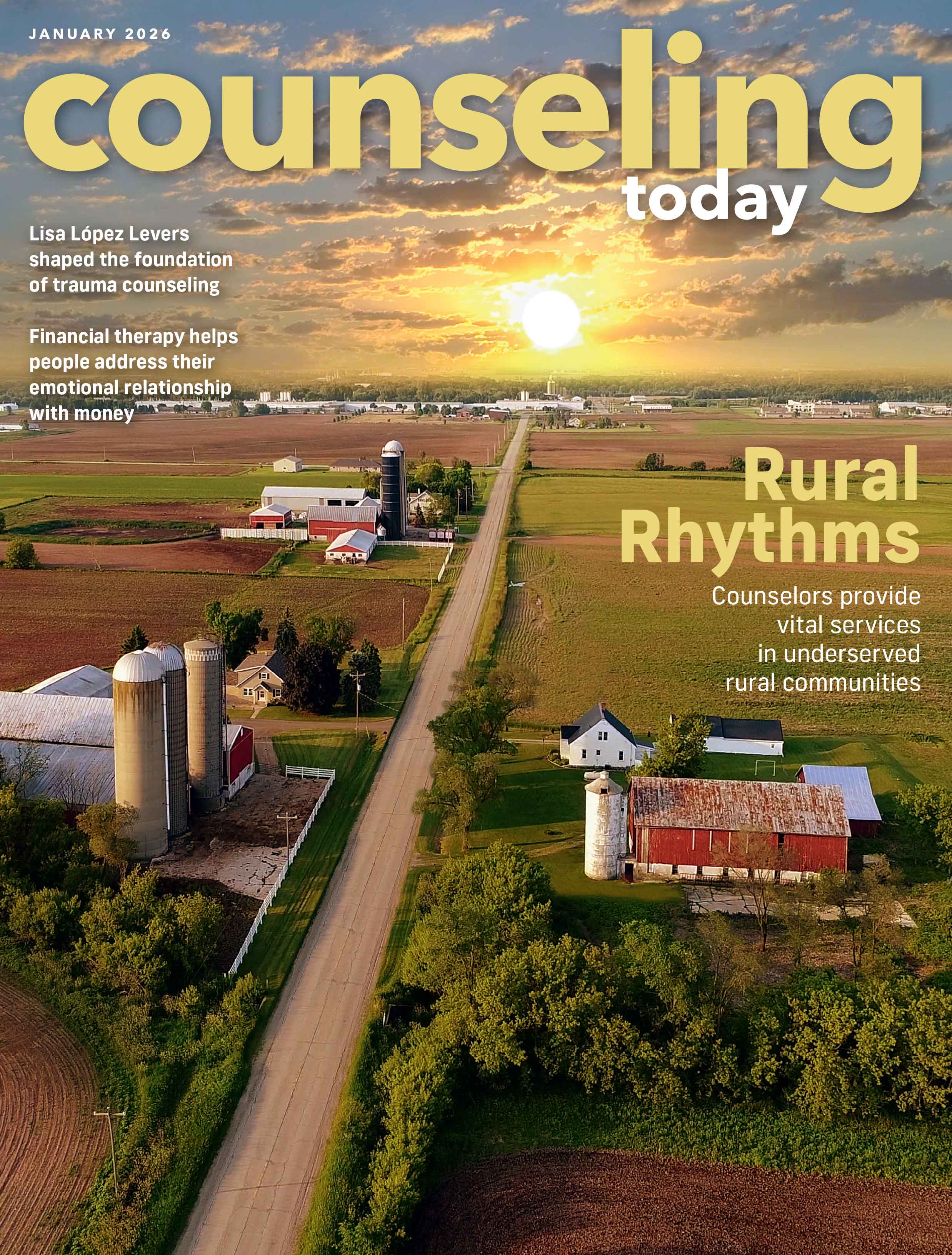Strength in Unity
By M. Elsa Soto Leggett, PhD, LPC-S, RPT-S, CSC
July 2025

Greetings! I am grateful to be with you and with ACA. I appreciate you welcoming me into this role with ACA. At such a time of uncertainty and unknowns, standing alongside you inspires me and makes me hopeful. As so much demands our attention and requires action, the community of ACA members and counselors can work together to create change.
I first became a member of ACA in 2002. I held a number of identities — professional school counselor, licensed professional counseling associate and counselor educator doctoral student. ACA became my national counseling community and professional home. It was an easy fit for all of my roles. It also opened the doors for service and advocacy.
I grew up in a home that valued servant leadership — the desire to serve and give to the community. In my Mexican American family, I was influenced by family, community, collective good works and faith. Servant leadership resonates with my cultural values of service, family, faith, community and social justice. These components continue to provide a perspective on how I look at and work within my professional life. They also guided me in what I was looking for in ACA and in developing my professional identity.
I have always been inspired to seek an education and training that would give me an opportunity to help others improve their lives and navigate difficult times. I began this road to professional counseling when it was my turn to go to graduate school. Texas A&M University-Corpus Christi opened the door to both my master’s in school counseling and doctorate in counselor education. Completing my higher education felt like an unbelievable accomplishment for a high school senior who had been steered away from higher education and directed to find a job.
My career as a counselor educator has spanned a small collection of universities: Texas Southern University (a historically Black college or university), University of Houston Victoria at Sugar Land, Houston Baptist University and now Truman State University. The graduate and doctoral students at each institution reignited my passion for counseling over and over again. I have immensely enjoyed my work in counselor education, as well as in my small supervision practice. My relationship with students and supervisees has been meaningful. The opportunity to encourage and mentor them as they discover the wonders and power of counseling has been more fulfilling than I could have anticipated.
Since I came into the field of counseling at the turn of the century, I have witnessed the profession’s growth. To add perspective, when I was a senior in high school, I did not have any idea of how to become a professional counselor or where to learn more about it. Early counseling models were beginning their development, and exploration of mental health was beginning to bud. Licensure and certification efforts were gaining energy to ensure counselors met certain educational and ethical standards. Over time, communities began to understand that professional counselors seek to help individuals gain personal insights and solutions to their challenges.
People also started to recognize their unique lived experiences and how these integrated components of their lives contribute to the whole individual. Counseling has continued to evolve to address the complex and diverse needs of our rapidly changing society and world. I am amazed to have watched this progression.
Recently, I feel like that progress may be threatened. It seems like a fog is rolling in. Things may be changing, and I’m unclear about what that change will bring. This upcoming year could be, can be, and should be something we focus on. I do not have a full understanding of what is happening and to what degree. I do not have answers on how to address those changes. What I do know is the cultural values that laid the foundations in my youth will serve me now. My obligation to servant leadership, laced with a collective community, a sense of good works, a family of counselors, faith and social justice, will cultivate the path forward.
My Areas of Focus
These events and considerations have led me to identify focus areas for the coming year: promoting and strengthening our professional identity and advocating at many levels and modalities. These areas often go hand in hand — just as professional counselors need to lock arms to work together. Expanding the connection and relationship with our state branches and divisions will be key. Likewise, ACA leadership will continue to work with the Professional Counseling Leadership Coalition to address the challenges we are facing. We’ll recognize opportunities to bring needed changes to our field. In addition, ACA members will need to lock arms to address any threats.
Together, we can ensure others understand who we are, what we do and how we benefit communities. Our collaborative spirit and genuine efforts to work together can achieve remarkable things for us, the counselors that follow us, and our communities. I am looking forward to working alongside each of you. Your dedication and passion make ACA exceptional.


